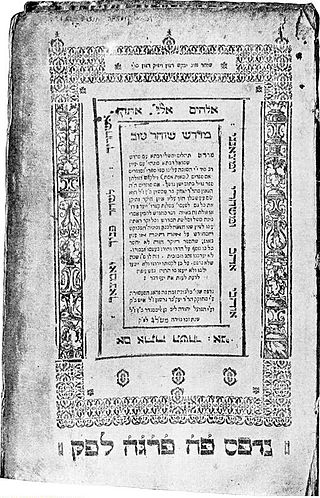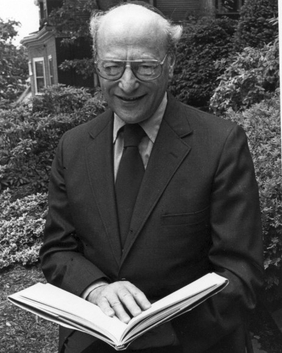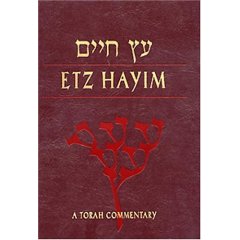
Midrash is expansive Jewish Biblical exegesis using a rabbinic mode of interpretation prominent in the Talmud. The word itself means "textual interpretation", "study", or "exegesis", derived from the root verb darash (דָּרַשׁ), which means "resort to, seek, seek with care, enquire, require", forms of which appear frequently in the Hebrew Bible.

Exegesis is a critical explanation or interpretation of a text. The term is traditionally applied to the interpretation of Biblical works. In modern usage, exegesis can involve critical interpretations of virtually any text, including not just religious texts but also philosophy, literature, or virtually any other genre of writing. The phrase Biblical exegesis can be used to distinguish studies of the Bible from other critical textual explanations.
According to Rabbinic Judaism, the Oral Torah or Oral Law are statutes and legal interpretations that were not recorded in the Five Books of Moses, the Written Torah, and which are regarded by Orthodox Jews as prescriptive and given at the same time. This holistic Jewish code of conduct encompasses a wide swathe of rituals, worship practices, God–man and interpersonal relationships, from dietary laws to Sabbath and festival observance to marital relations, agricultural practices, and civil claims and damages.
Academic study of Jewish mysticism, especially since Gershom Scholem's Major Trends in Jewish Mysticism (1941), draws distinctions between different forms of mysticism which were practiced in different eras of Jewish history. Of these, Kabbalah, which emerged in 12th-century southwestern Europe, is the most well known, but it is not the only typological form, nor was it the first form which emerged. Among the previous forms were Merkabah mysticism, and Ashkenazi Hasidim around the time of the emergence of Kabbalah.
This is a list of books by Jacob Neusner. Articles, reviews, etc. are not included here.
Tikva Simone Frymer-Kensky was a professor at the University of Chicago Divinity School. She received her MA and PhD from Yale University. She had previously served on the faculties of Wayne State University, the Jewish Theological Seminary of America, Yale University, Ben Gurion University, and the Reconstructionist Rabbinical College, where she served as director of Biblical studies.
Hebrew Bible English translations are English translations of the Hebrew Bible (Tanakh) according to the Masoretic Text, in the traditional division and order of Torah, Nevi'im, and Ketuvim. Most Jewish translations appear in bilingual editions (Hebrew–English).
Paul David Hanson was an American biblical scholar who taught for 40 years at Harvard Divinity School in Cambridge, Massachusetts.
Pardes (פרד"ס) is a Kabbalistic theory of Biblical exegesis first advanced by Moses de León, adapting the popular "fourfold" method of medieval Christianity. The term, sometimes also rendered PaRDeS, means "orchard" when taken literally, but is used in this context as a Hebrew acronym formed from the initials of the following four approaches:
Jewish commentaries on the Bible are biblical commentaries of the Hebrew Bible from a Jewish perspective. Translations into Aramaic and English, and some universally accepted Jewish commentaries with notes on their method of approach and also some modern translations into English with notes are listed.

Nahum Mattathias Sarna was a modern biblical scholar who is best known for the study of Genesis and Exodus represented in his Understanding Genesis (1966) and in his contributions to the first two volumes of the JPS Torah Commentary (1989/91). He was also part of the translation team for the Kethuvim section of the Jewish Publication Society's translation of the Bible, known as New Jewish Publication Society of America Version.
Yeridat ha-dorot, meaning literally "the decline of the generations", or nitkatnu ha-dorot, meaning "the diminution of the generations", is a concept in classical Rabbinic Judaism and contemporary Orthodox Judaism expressing a belief in the intellectual inferiority of subsequent, and contemporary Torah scholarship and spirituality in comparison to that of the past. It is held to apply to the transmission of the "Revealed" aspects of Torah study, embodied in the legal and homiletic Talmud, and other mainstream rabbinic literature scholarship. Its reasoning derives from the weaker claim to authoritative traditional interpretation of scripture, in later stages of a lengthening historical chain of transmission from the original revelation of the Torah at Mount Sinai, and the codification of the Oral Torah in the Talmud. This idea provides the basis to the designated Rabbinic Eras from the Tannaim and Amoraim of the Talmud, to the subsequent Gaonim, Rishonim and Acharonim. Additionally, it has an extra metaphysical explanation in Kabbalah, regarding lower levels of souls in succeeding generations.

Arthur Green is an American scholar of Jewish mysticism and Neo-Hasidic theologian. He was a founding dean of the non-denominational rabbinical program at Hebrew College in Boston. He describes himself as an American Jew who was educated entirely by the generation of immigrant Jewish intellectuals cast up on American shores by World War II.
Gender and Jewish Studies is an emerging subfield at the intersection of gender studies, queer studies, and Jewish studies. Gender studies centers on interdisciplinary research on the phenomenon of gender. It focuses on cultural representations of gender and people's lived experience. Similarly, queer studies focuses on the cultural representations and lived experiences of queer identities to critique hetero-normative values of sex and sexuality. Jewish studies is a field that looks at Jews and Judaism, through such disciplines as history, anthropology, literary studies, linguistics, and sociology. As such, scholars of gender and Jewish studies are considering gender as the basis for understanding historical and contemporary Jewish societies. This field recognizes that much of recorded Jewish history and academic writing is told from the perspective of “the male Jew” and fails to accurately represent the diverse experiences of Jews with non-dominant gender identities.

Etz Hayim: Torah and Commentary is a humash published and used by Conservative Judaism. Its production involved the collaboration of the Rabbinical Assembly, the United Synagogue of Conservative Judaism, and the Jewish Publication Society.
Jon Douglas Levenson is an American Hebrew Bible scholar who is the Albert A. List Professor of Jewish Studies at the Harvard Divinity School.

The origins of Judaism lie in Bronze Age polytheistic Canaanite religion. Judaism also syncretized elements of other Semitic religions such as Babylonian religion, which is reflected in the early prophetic books of the Hebrew Bible.
Bernard Malcolm Levinson serves as Professor of Classical and Near Eastern Studies and of Law at the University of Minnesota, where he holds the Berman Family Chair in Jewish Studies and Hebrew Bible. He is the author of Deuteronomy and the Hermeneutics of Legal Innovation, "The Right Chorale": Studies in Biblical Law and Interpretation, and Legal Revision and Religious Renewal in Ancient Israel; and is the co-editor of The Pentateuch as Torah: New Models for Understanding Its Promulgation and Acceptance. He has published extensively on biblical and ancient Near Eastern law and on the reception of biblical literature in the Second Temple period. His research interests extend to early modern intellectual history, constitutional theory, the history of interpretation, and literary approaches to biblical studies.
Michael V. Fox is an American biblical scholar. He is a Halls-Bascom Professor Emeritus in the Department of Hebrew and Semitic Studies at the University of Wisconsin–Madison. Fox has been described as a "highly regarded authority on biblical wisdom literature."
Matthias Henze is the Isla Carroll and Perry E. Turner Professor of Hebrew Bible and Early Judaism at Rice University in Houston, Texas.





